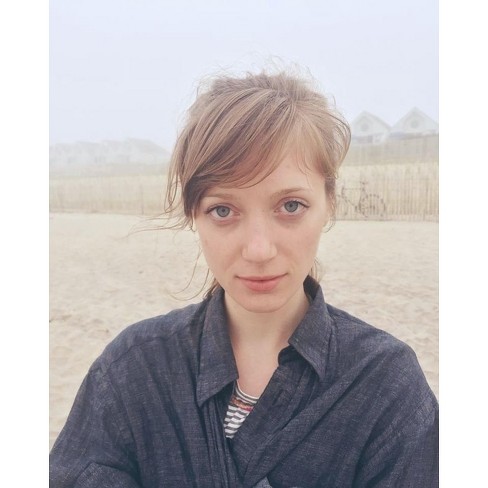
Earlier this year I came across a piece in the New Yorker about the Instagram influencer-turned-literary scam artist Caroline Calloway. The piece details the release of Calloway’s long-delayed memoir Scammer, a self-published effort that she bills as “a daybook of 67 vignettes,” and which comes on the heels of her former ghostwriter Natalie Beach’s essay collection Adult Drama. Given the controversy surrounding the pair’s ill-fated collaboration, I had expected, perhaps rather gleefully, that the tandem releases might further expose Calloway as a charlatan. But lo and behold, evaluating the two books together reveals the opposite to be true: It is Calloway, not Beach, who emerges as the stronger writer: “Scammer is funny, engaging, and full of genuine insight . . . Beach’s book, on the other hand, is almost irritatingly rooted in fact.”
This strain of twisted logic surges through the pages of Thieves (Fence Books, 2023), the debut novel by writer and artist Valerie Werder. The most recent recipient of the Fence Prize in Modern Prose, it is also a tale of scheming and debasement, although Werder’s heroine shares little of the self-possession that helped foist Calloway into niche celebrity. Broke, constipated, and emotionally destitute, our protagonist, also named Valerie, toils away at her job at an upscale New York art gallery, where her boss bullies her and exploits her intellectual labor. Disenfranchised, desperate for a way out, she embarks on a love affair with the handsome, elusive shoplifter Ted, and her new paramour proceeds to haze her into his life of crime and punishment. A Bonnie and Clyde for the Dean and Deluca set, together they steal blood-soaked steaks and sleeves of goat cheese, cashmere scarves and lavender-scented lotions, and for a moment it appears that Valerie has conquered her malaise—but just as she attains it, her freedom manages to slip from her grasp.
Lofty and ambitious as it is, I must admit that, upon first receiving my copy of Thieves, I was disinclined to read it. I’d grown weary of the tropes and clichés that plague much of the literary fiction of the past decade—conceited, spiritually stunted narrators; vague plotting and stuffy language being passed off as lyrical discursions; paint-by-numbers diatribes about gender norms and affect theory and pseudo-socialist praxis—and the last thing I wanted to do was watch another art world-adjacent novelist make a spurious claim to the avant-garde lineage. But Werder has a way of subverting her reader’s expectations, and her sense of authority feels thrilling on the page, not to mention genuinely radical. Her prose gleams, her observations ring true, and she fuels her portrayal of Valerie with passion rather than grievance. Werder has delivered a first-rate novel, my favorite piece of fiction I’ve read this year. In time we may come to recognize her for having solved a major literary problem, for doing the thankless work of bringing the artist’s novel back down to earth.
The Somerville, Massachusetts-based Werder joined me on a Zoom call in late August; in conversation I found her to be warm and witty. We spoke about the challenge of inventing a writerly persona, the ordeal of existing in a female body, and her ever-abiding faith in dreams and transcendence.
Valerie Werder: I’m a little wary of the culture surrounding early success, the “thirty under thirty” phenomenon. Even though it can be great for those writers and artists who achieve that success, like, congratulations. And the work can often be quite good. But there’s something liberating about having your name mean nothing for a large chunk of your life. You don’t have the same pressure. . . . There was something really freeing about writing the book as a twenty-something nobody, and now I’m starting to feel protective of my former anonymity. Like, oh, will I suddenly become “Valerie Werder,” and be compelled to speak as “her”?
Quinn Roberts: I’ve also thought about people achieving success at a young age and have felt maybe jealous. But getting a little older, I don’t envy them as much. They must deal with lots of feelings of impostor syndrome.
Yeah, I completely agree. And yet there’s always something that can make you feel inhibited, whether it’s your age, your class background, or something else altogether.
There is indeed. . . . So tell me about your time as a twenty-something nobody.
Well, I finished the first draft of my book in 2018 and submitted it to so many different places. I must have sent it to at least one hundred publishers and contests. I got maybe five rejections, then ninety-something were just like, no response. And then Fence Books happened to select it for their Modern Prize in Prose series. That was back in 2019. I’ve been editing it since, slowly transforming it into the object it has now become. Fence is a tiny independent publisher, though, so there’s no huge publicity campaign for Thieves. No tens of thousands of dollars, no team of publicists working to get me with this podcast and that talk show and that reviewer. It’s just me and my editor. . . . So, nothing has changed just yet.
So you feel the work of becoming “Valerie Werder” is ongoing.
The work is ongoing, and the work is strange. It’s like . . . hm, how do I say this. It kind of feels like working at a gallery.
I did work at a gallery while I was writing the manuscript. Much of the story of Thieves hews very close to my own life. But, to write the book, I lied and told my boss I got this prestigious writing residency and needed three months off. I had not gotten any kind of residency, this was a total fabrication. I went to a friend-of-a-friend’s cabin in Tennessee that I could rent cheaply, and there at the cabin I wrote the first draft. I had no creative writing training, had never taken a creative writing class. I just got it in my head that because I wrote for the gallery anonymously, drafting press releases, conducting interviews, just doing all the writing, really . . . I was like, I’m writing, I’m a writer. This is all my writing, but none of it belongs to me. None of this is in “my” voice. What if I wrote a novel about this situation of being a nameless voice and published it under my own name?
In the novel the character Valerie—which is not to say Valerie Werder the novelist—she hates writing for the gallery, she loathes it. And yet her bosses keep lavishing her with all this praise, telling her, oh Valerie, you’re so brilliant, you’re the voice of the gallery.
Yeah, there’s this funny type of attachment that happens in the workplace. Almost like a love relation.
And you portray this dynamic in the email exchanges between Valerie and her boss. When she first takes the sabbatical, Linda from HR writes her this email and lavishes her with even more praise. Really lays it on thick—Like, “Oh please, please come back!”—and then Helene, the gallery owner, follows up and she takes a more bullying tone: “May I remind you that the gallery has given its all to you, and you have a responsibility in turn to do some very basic writing for me.” Like, don’t you think you owe us?
[Laughs] Exactly. It’s like trying to get back a lover who’s abandoned you. “Oh, please come back to me, I love you, you’re wonderful.” But then, “Oh, how dare you leave me in the first place . . .”
I’d like to hear more about the setbacks you faced. What obstacles came in your way, and how did you manage to clear them?
Hm . . . Well, I told you I don’t have any formal creative writing training. I learned to write at the gallery, and that experience taught me to produce effective sales language very quickly. But writing for the gallery was like writing on drugs: “Okay, a fifty-million-dollar painting comes in at 10 a.m. Valerie, write us an essay that will make a collector buy this painting by 2 p.m.” I learned to do that, and I could produce texts that functioned as these beautiful linguistic surfaces. But soon that became the only type of language I could produce. So when I took the first draft of Thieves to friends and workshops for feedback, they all gave me the same criticism: This is purple prose. Like, it’s beautiful to read, but it means nothing. And it hurt to hear that, it sucked. But then I thought, hm, maybe they’ve got a point.
Traditional MFA workshops train students to tighten up their sentences, ruthlessly edit things down. They teach them to “show and not tell.” But I found that style to be fundamentally at odds with the style of writing I’d learned at the gallery, and I felt this sense of tension between the MFA writing and the language I had encountered in other realms, like the art world, advertising, corporate America. I think it’s strange that the writing MFA programs advocate for is completely divorced from the hallucinatory, over-the-top, authorless language we find in the commercial realm. In the end, I made the decision to primarily stick with the voice, no matter how “purple” it may be. Because I wanted to keep that style, I had to accept the fact that my book would get extreme reactions out of people.
And there were other more practical difficulties, too. You know, I had to take the sabbatical—
As you call it, your bogus sabbatical.
My fake sabbatical. But yeah, I want to be very transparent about the fact that I invented a residency and swindled my boss. There’s so much about inventing oneself as a writer that involves lying, just making shit up. Demystifying that process is very important to me.
Many of my favorite passages in Thieves contain depictions of dreams: “That night, Valerie dreamed of herself and Julie, small, playing tag on a steep hill in warm summer dusk . . . The girls could not see the danger, but felt it in their bodies.” Can you tell me more about the role of dreams?
I’m glad you enjoyed the dream sequences. I am a compulsive journaler and a compulsive dream journaler, and most of those passages come directly from my journal. Either that, or they draw heavily on journal entries.
I’m not interested in dreams in the way pop-Freudianism is. Like oh, what’s the symbolism of this dream, where’s the hidden meaning. In the dream sequences in Thieves, I tried to show that the subconscious is entirely a product of discourse, that dreams can reveal life to be an agglomeration of clichés. Dreams don’t recognize people or places as singular. They slot all the particularities of life into prefabricated roles, and they mix up details promiscuously. Like, a man I dated years ago comes in and he takes the place of the man I’m dating now. The dream just needs a figure to stand in for “man” to make its narrative work.
That happens in Valerie’s dreams, too. Character Valerie.
And I love that about dreams. They can be so truthful. Of course, I acknowledge that people are singular and bodies are not transposable. I don’t want readers to think I regard people solely as clichés and templates. But every person, to some degree, is a cliché, insofar as bodies are formed into individuals through discourse. And my dreams can often reflect that. It’s like, hm, I’m going to sift through Valerie’s brain and pull people and events and objects from her psyche at random. It’s like playing a game of Mad Libs inside my head.
[Laughs] Mad Libs, nice . . . I keep a dream journal too. And it’s weird, I recall taking workshops in undergrad and hearing professors tell us repeatedly, don’t depict dream sequences, don’t do it, it’s basically a no-go.
Yeah.
And that aesthetic rubric . . . it can be quite limiting.
I now teach in an art program, and the film students get the same advice. Don’t do dream sequences, don’t show characters looking in the mirror, it’s all cliché. But in real life we dream, and we spend time looking in the mirror. Real life is full of clichés! Why can’t writing embrace that?
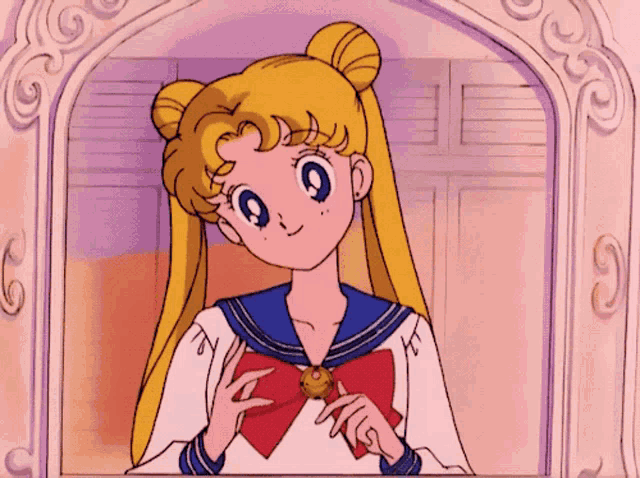
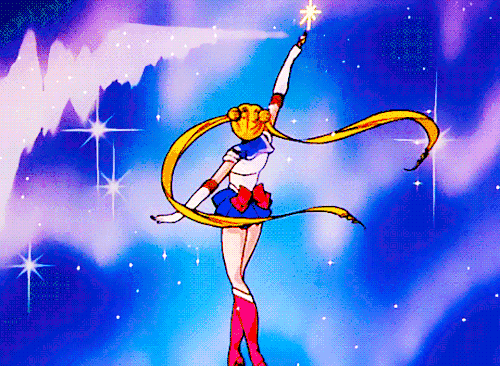
Speaking of Freud, I thought of him as I read Thieves. And I thought of some other thinkers too. But the one I kept returning to is the late, great Simone de Beauvoir. You share with her a painstaking attention to detail and a brutal yet elegant form of candor. And just as in The Second Sex de Beauvoir sets out to answer the question of “What is woman?” I feel that you’re striving to create a narrative that is all-encompassing. Something that runs the gamut of female experience.
Yeah. This question is so on point. De Beauvoir . . . Ugh, she drags you through everything: biology, psychology, Marxism. Every single discourse in which you find misogynistic, patriarchal thought. And then what she does, because she’s attempting to confront these totalizing systems of knowledge, and because her takedowns of them are so effective, is she ends up contradicting herself constantly. Which goes to show you that the systems she’s confronting were never as totalizing as they appeared to be.
And I think that—ah, there’s this great quote of hers. De Beauvoir was being asked about her relationship with Sartre. I know I’m gonna butcher it, but whatever—
I can fact-check it later.
[Laughs] Thanks. I can’t pronounce their names with the French accent either . . .
So, she was asked about Jean-Paul Sartre, with whom she had a very complicated partnership. They never got married, but they had a mutually agreed-upon contract in place to govern how they behaved with one another, how they were to conduct their relationship. They wanted their union to be emancipatory, to exist outside the bounds of marriage, of heterosexual normativity. And, because of this, their relationship could be quite difficult, and it made her unhappy at times. But when asked about this difficult, unhappy relationship of hers, de Beauvoir said, “My goal is not to be happy, my goal is to be free.”
I think she considered her life and relationships to be sites of philosophical experiment. And what I get from this quote is, like, I’m alive this one time. If I believe there’s no preexisting morality, I must invent an entire ethics and way of being. And, given the choice between happiness and freedom, I choose to pursue freedom.
Along with the question of “What is woman,” I sense a secret question that lurks within de Beauvoir: “Where am I in all of this, and how do I get out?”
That is a beautiful quote: “I don’t want to be happy, I want to be free.” For me, personally, freedom is the most important thing. Nothing is more important than freedom.
For much of the novel, you depict Valerie as pathetic. Tripping over her shoelaces, paralyzed by all these contradictions . . . But if some might call that portrayal frustrating, I think it works to your advantage. Because it makes Valerie’s rare moments of agency feel all the more gratifying. I think especially of the end of Part Two, in the scene at the bar where Valerie bumps into Professor ________. And they get to talking, and he comes off as a serious jackass: “That’s quite enough about me. Now it’s your turn. Tell me, what did you think of the essay I wrote for your little catalog?”
Yeah.
And they decide to strike a bet, and she scores $300 off him . . . And it’s such a conflicted moment. Because, sure, maybe she’s $300 richer. But then she goes and pukes her guts out on the side of the street.
That was one of the most fun scenes to write, because the writing became a means of freeing myself from what “really happened.” I mean, I’ve never played that sort of game with a professor in real life. But this scene was a way for me to embody a sense of agency that I rarely feel. And I think, God, I don’t know if I’ve ever in my life had a moment of real freedom. I’m not sure anyone has. And “freedom” has become such an insidious concept, too: The defense of American “freedoms” is used to justify violence in the Global South, and “free speech” is now a rallying cry to excuse and legitimize interpersonal harm.
Jacqueline Rose has this idea that gendered abuses of power serve to occupy the psychic space of the abused. Like, the abused person can think of nothing beyond the circumstance of their abuse. They have no psychic freedom, no capacity for self-determination. Maybe, under this paradigm, we might think of Valerie as being abused by neoliberal capitalism, by misogyny. The abuser also claims the right to know their victim, to define and label their victim. So Valerie is psychically occupied by all these conditions. But then when she attempts to free herself, the novel shifts to the second person, to “you,” the mode of direct address. The language animates the reader as Valerie, compels her to become Valerie. It’s almost as if, in order to reach freedom, the narrative voice has to outsource her unfreedoms into the psychic space of the reader. This is what spurs the novel’s shift from third person to second to first.
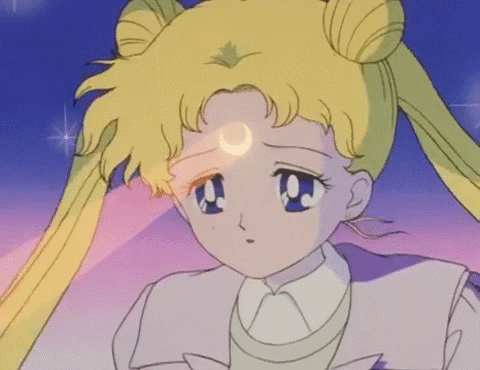
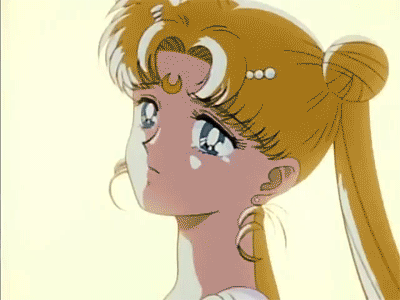
Who are some other writers you see yourself in conversation with? You mentioned the Argentine writer and poet Cecilia Pavón as one. Who else would you like to break bread with, intellectually speaking?
Cecilia Pavón is one for sure. And then, hm . . . Lynne Tillman, Hervé Guibert, Chris Kraus. Artists like Adrian Piper and Sophie Calle. All these figures who come from a Proustian legacy of creating a double self that is so, so close to the actual self. Their work has the effect of calling the real self into question, showing that there is no true self, only the perpetual creation of masks.
In my case, too, there’s no real “Valerie Werder.” There is me, this thing, this body. And then there’s Valerie on the page. And as far as writing goes . . . so because I worked at the gallery, I’ve ghostwritten for dozens of people. I also produce text messages and academic essays and grocery lists and journal entries, and now I’ve written a novel. And all these texts are written by me, but they’re not all authored by “Valerie.” I don’t know if what I’m saying makes sense, but—
No, it does. And this idea comes up in the novel too, towards the end of Part 4. Valerie runs out of money, so she breaks her sabbatical and starts writing for the gallery again. But as it happens, she begins to plagiarize herself—
Yes.
—and then the plagiarism turns into, like, an extension of her shoplifting.
Yeah, totally. Wow, I never drew that connection before. That’s so fucking cool . . .
In those moments of plagiarism, Valerie is composing a press release for the artist Ana Mendieta. But she uses old press materials she wrote for other artists and grafts in Ana Mendieta’s name, just copies and pastes—
As if Mendieta hasn’t gone through enough bullshit, getting pushed to her death out of a building by Carl Andre.
I know, seriously. I had to make it her. . . . But it felt true to what I saw in the art world at the time. These tiny spaces being made in an already existing discourse for the lone woman artist, the non-Western artist of color.
It’s funny you ask the question about plagiarism because it’s sort of what I’m doing now. To promote my book, I must transform myself into a commodity, into a brand. One of the best sales tactics I learned in gallery-land was to look for “comparables.” To invent a painter’s value, you compare her work to that of other painters. A shrewd salesperson tends to choose the comparables that are higher in value. . . . But then this thing starts to happen where the same four names get repeated over and over: So-and-so painter X is like de Kooning, and so-and-so Y is also like de Kooning, as is so-and-so Z, ad infinitum. It’s both sad and a little bit creepy.
Disembodiment recurs as a motif in Thieves, as do emptiness and the void. And it’s tinged with this grim sort of yearning. Where does your interest in disembodiment come from?
I love this question, too. Valerie really is after disembodiment. . . . But she’s also after perfect embodiment. She wants to reach a state of being which is evacuated of subjectivity.
Yeah, like a corpse. Your book contains so many depictions of corpses and vessels: “She could visualize herself naked and supine on a conveyor belt. . . . The body, though, was not Valerie’s actual body, but rather a kind of impersonal, animate mannequin.” I think the writing here is quite stunning. Erotic, almost.
It’s very erotic. In life we have these moments of overwhelming sensation, almost Bataillean, in which you forget that you are an agential subject, and you experience a loss of self. These moments can occur through the act of writing, they can occur in erotic experiences. And they can also happen while shoplifting. . . . Valerie is after that loss of self, and shoplifting brings it out in her. But she can’t tolerate the loss of other selves, other people evacuating themselves of subjectivity and thereby rendering her own identity unstable. Like when Ted disappears and she tries to piece together the details of his life—
And snoops through his phone records.
Yeah, what the hell Valerie. . . . It’s an act of invasion. She becomes a detective. Like, she’s chasing after this ecstatic loss of self, but then from others she demands a total, transparent coherence: “Who are you, do you really love me, what are you hiding from me,” etc. So she knows how to be a self, and she yearns to not be a self, but she can’t tolerate it when others do the same. She wants the void, but she doesn’t know how to handle it.
Ted is the closest character to the unmarked universal subject, the Man of political philosophy and the human sciences that de Beauvoir both wrote against and was jealous of. And man is not so much an identity as a formula, a generic cutout against which bodies are measured. It’s a void, an outline! Perhaps this is why Valerie’s evacuation of “self” is both liberating and annihilating: It’s freeing to live like Ted, but for her it can never be enough. She can only ever chase after Ted, try to pin him down, try to figure him out so she can be like him. But as long as she remains a girl, as long as she occupies a marked identity position, she can’t be entirely free. She can’t be the void. This is what I hoped to illustrate in the final page: to point towards a possible way out.
Okay, so retroactive spoiler alert, then: In this obsessive quest of hers, Valerie does end up losing herself. She shoplifts, she gets arrested, she goes to jail. And something else about your book that impressed me . . . Okay, so there’s this fuss over “unlikeable” female characters.
Ha! Yes—a well-worn battle in the literary trenches.
And Valerie, you know, she’s a deeply unlikeable character. I did not like her, and in fact I couldn’t stand her. But even in the moments when she’s at her most pathetic, you still find a way to make her sympathetic. I can totally relate to her dilemma. . . . And I can’t blame her, either, for going to the lengths she does. It’s the same thing that drove Emma Bovary to ruin.
Right.
Like, she’s a human being. She’s just a woman.
Yeah, she really is. Poor girl . . .
I’m again reminded of the de Beauvoir quote: “I don’t want to be happy, I want to be free.” Maybe instead, for Valerie, we could reformulate it as: “I don’t want to be liked, I want to be free.”
I think the quote you’re looking for is, “I’m not bossy, I’m the boss.”
[Laughs] Yeah, that one.
Quinn Roberts has published his writing in Evergreen Review, Foglifter Journal, and the Los Angeles Review of Books. He is at work on his first book.
This post may contain affiliate links.







